Contents

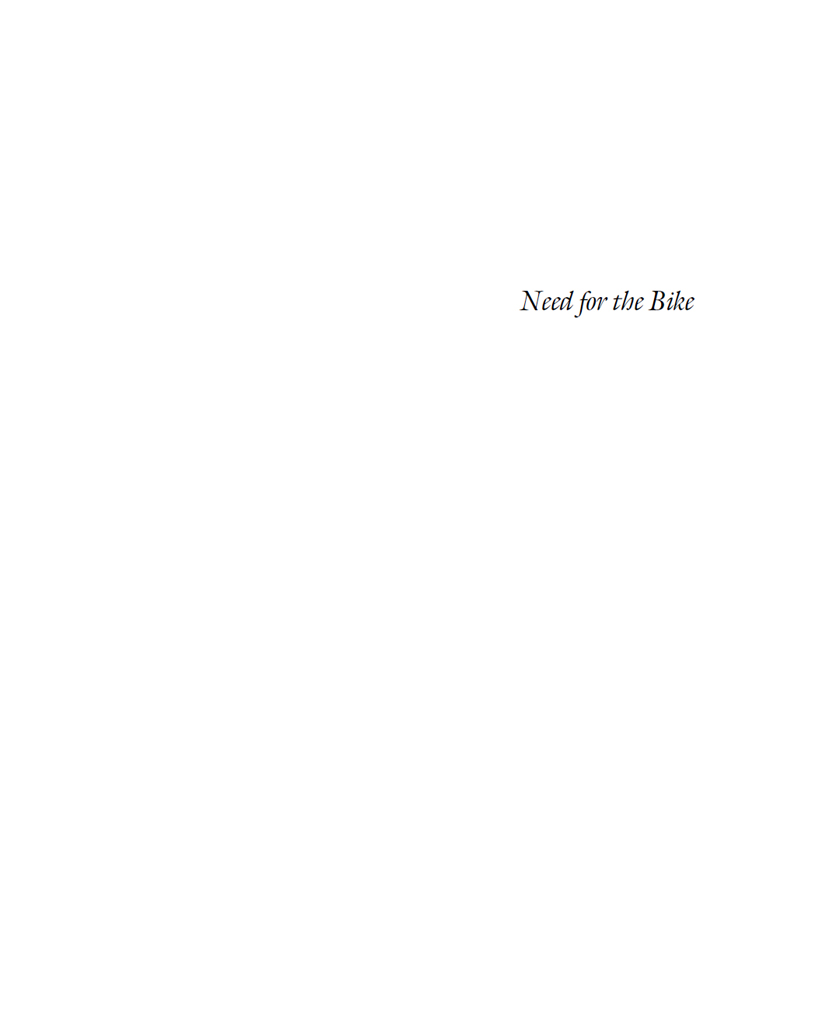

Publication of this book was assisted by a grant from the National Endowment for the Arts.  Cet ouvrage, publi dans le cadre dun programme daide la publication, bnficie du soutien du Ministre des Affaires trangres et du Service Culturel de lAmbassade de France aux Etats-Unis. This work, published as part of a program of aid for publication, received support from the French Ministry of Foreign Affairs and the Cultural Services of the French Embassy in the United States.
Cet ouvrage, publi dans le cadre dun programme daide la publication, bnficie du soutien du Ministre des Affaires trangres et du Service Culturel de lAmbassade de France aux Etats-Unis. This work, published as part of a program of aid for publication, received support from the French Ministry of Foreign Affairs and the Cultural Services of the French Embassy in the United States.
Besoin de vlo Editions du Seuil, 2001 Translation and Translators Introduction 2003 by the Board of Regents of the University of Nebraska
All rights reserved Manufactured in the United States of America
Library of Congress Cataloging-in-Publication Data
Fournel, Paul, 1947 [Besoin de vlo, English] Need for the bike / Paul Fournel ; translated and with an introduction by Allan Stoekl.
p. cm. ISBN 0-8032-2019-7
(cl. : alk. paper) ISBN 0-8032-6909-9 (pbk : alk. paper)
1. CyclingAnecdotes. 2. Tour de France (Bicycle race)Anecdotes. I. Title. GV 1043. F 6813 2003 796.6%2dc21 2003043447
The appendix, Sur le Tour de France 1996 (pp. 161236 of the French original), has been omitted from this English-language edition.
The publisher does not have any control over and does not assume any responsibility for author or third-party websites or their content.
Translators Introduction
Paul Fournels Need for the Bike is like no other work on cycling that I know. Its not a technical manual, not a hagiography of a few racers. The focus is not on machinery nor on heroes whose very virtue is that they cannot be emulated.
Instead Fournel presents a world, a very personal one, whose axis is the bicycle. Its a world of communication, of connection, where all people and things pass by way of the bike.
Learning to ride, Fournel makes clear, is learning to speak a language. Cycling is not simply a series of techniques but rather a descriptive universe colorful, lyrical, peopled with gods and demons a coherent universe in which one lives, or wants to live, and from which, on occasion, one senses a bitter exile. The Witch with Green Teeth (in English, we say bonking), the Man with the Hammer (hitting the wall), the Wool Eaters (wheel suckers), Squirrels (trackies), and all the other locutions are first and foremost personifications of states of cyclist being. Entering this world is more than just learning slang along with a few tricks: its fashioning and defining oneself, in opposition, in cooperation, in connection, in body and mind. The Man with the Hammer may be waiting to strike just around the next corner, but he is to be found first within the cyclist himself. Learning to ride is learning to recognize that Man and oneself through that Man: his meaning in all senses, intellectual, moral, physical.
Fournels world is beautiful, one of landscapes, animals, people, sights, smells, and sensations. And communication. The cyclist communicates with and through his body, with himself through his own body language, and finally with others through a language conditioned, even determined, by his riding. The rider is a writer, and just as his thoughts are profoundly physical when hes on a bike, so too o the bike his thoughts, shaped, formed, and deformed by the rhythm and eort of the ride, come to the fore in the writing of texts: stories, articles, poems. Its a world of writing and riding; Fournel himself says my work and my leisure. But which is which? Writing (work?), the important writing, itself is the after-eect of riding, and riding (leisure?) cannot be conceived outside of the narrated world: legends, friends stories, personal adventures of all kinds. The bicycle is the key to the past, the trigger of the earliest memories, not only of childhood enchantment but also of subliminal, physical traces that refuse analysis or definition. It is also the key to the future: ones future as a cyclist, to be sure, and hence ones relation to ones own aging body, but also to ones friends and to all of society the countryside, the city, the world.
* * *
Given all this, the translators task is formidable. I have, of course, always tried to convey the meaning of the French slang. In some cases this can be done only by translating it literally; one could not understand, for example, the implications of going to meet the Man with the Hammer if the term were simply translated into American slang (which would be the rather flat hitting the wall).
On occasion this results in a mutant language that will enable the English-speaking reader to enter into the conceptual world of the French cyclists. Perhaps theirs is a richer lingo than our own; after all, the Eskimos are said to have fifteen different words for snow, and it should not be surprising, with the richness of the cycling tradition of the French that their bicycle lexicon is complex and dramatic.
In addition, Paul Fournels prose is informed by the vast and subtle research he has carried out for more than thirty years with the Oulipo group in France. This group, whose membership has included such major writers as Raymond Queneau, Harry Mathews, Georges Perec, and Jacques Roubaud, concerns itself with all aspects of text generation: rhetoric, games, puzzles, formal rules, and the texts derived through them. Much of the most innovative and important literature of the past forty years has come from Oulipo members; though Fournel would perhaps not consider Need for the Bike to be a full-blown Oulipo project, its meditations on language, naming, and writing clearly are inseparable from those of Oulipo.
Ive decided not to encumber the text with footnotes; instead, here are a few books that, if consulted, will provide both knowledge and pleasure. All of the works here listed are in English.
On Oulipo:
Oulipo Compendium . Edited by Alistair Brotchie and Harry Ma-thews. New York: Atlas Press, 1998.
Oulipo: A Primer of Potential Literature . Edited by Warren Motte. Lincoln: University of Nebraska Press, 1986.
Both of these Oulipo works contain a number of experimental writings by authors mentioned in Need for the Bike ; the second title contains some interesting text-generation experiments by Paul Fournel.
Some works in translation by major Oulipo authors are:
Fournel, Paul. Little Girls Breathe the Same Air as We Do . Translated by Lee Fahnestock. New York: G. Braziller, 1979.
Mathews, Harry. The Sinking of the Odradek Stadium . Manchester: Carcanet, 1985.
Perec, Georges. A Void . Translated by Gilbert Adair. London: Harvill, 1994.
Queneau, Raymond: Exercises in Style . Translated by Barbara Wright. New York: New Directions, 1981.
Roubaud, Jacques. The Great Fire of London: A Story with Interpolations . Translated by D. Di Bernardi. Normal il : Dalkey Archive Press, 1991.
A useful book for getting up to speed on the history of the Tour de France, many of whose major figures are mentioned by Fournel, is:
Fife, Graeme. Tour de France: The History, the Legend, The Riders . New York: Mainstream, 2001.
Finally, the best cycle-touring book, which includes tours of many of the places visited in Need for the Bike , is:
Dillon, Sally, et. al., Lonely Planet: Cycling France . Oakland ca : Lonely Planet, 2001.

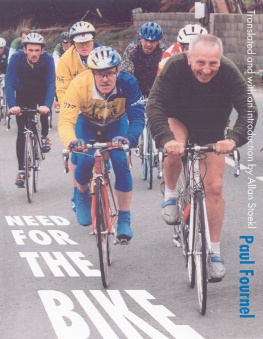


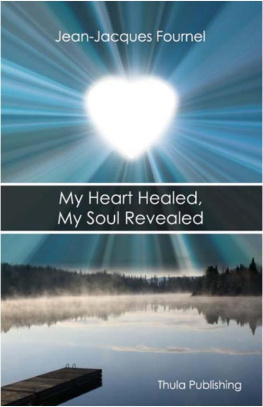
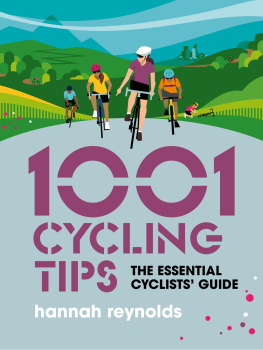
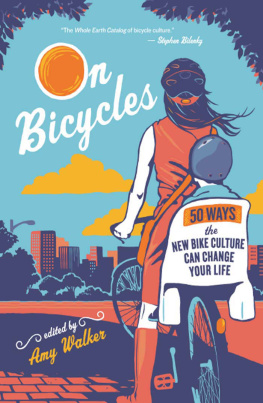
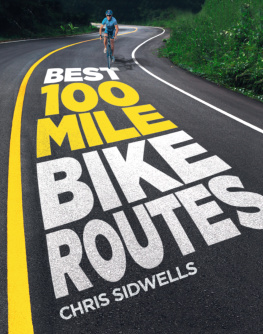
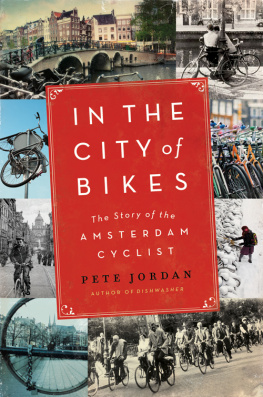
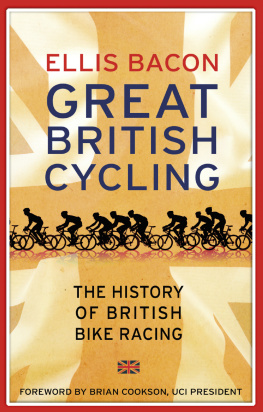
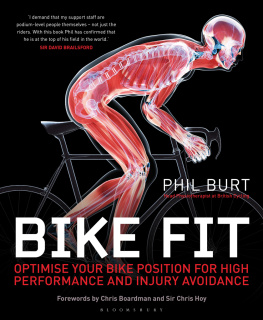
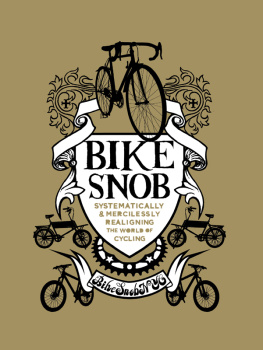
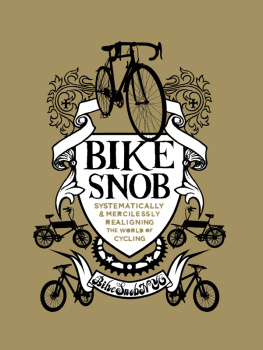



 Cet ouvrage, publi dans le cadre dun programme daide la publication, bnficie du soutien du Ministre des Affaires trangres et du Service Culturel de lAmbassade de France aux Etats-Unis. This work, published as part of a program of aid for publication, received support from the French Ministry of Foreign Affairs and the Cultural Services of the French Embassy in the United States.
Cet ouvrage, publi dans le cadre dun programme daide la publication, bnficie du soutien du Ministre des Affaires trangres et du Service Culturel de lAmbassade de France aux Etats-Unis. This work, published as part of a program of aid for publication, received support from the French Ministry of Foreign Affairs and the Cultural Services of the French Embassy in the United States.